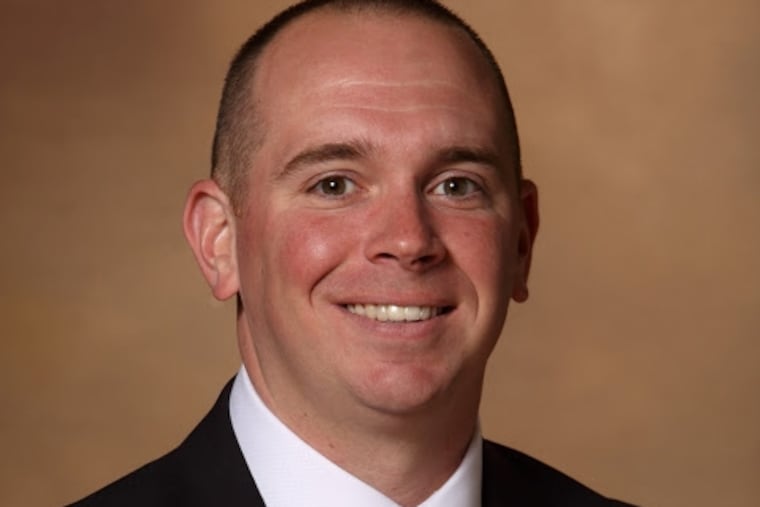Montco country club ordered by jury to pay $9.1 million to son of a golf professional who was killed by fallen tree
Justin Riegel worked as the director of golf at the Philmont Country Club. He died after he was struck by a falling tree in June 2020.

A Philadelphia jury awarded $9.1 million to the family of a golf professional who was killed by a tree that fell during a storm on a cart storage room of the Montgomery County country club where he worked.
Justin Riegel died in June 2020 after a 90-year-old oak tree uprooted by storm winds crashed into the cart barn of the Philmont Country Club, where he worked as the director of golf. On behalf of their son, who was born weeks after Riegel’s death, his widow, Kate Hannon, sued the corporate entities that own and manage Philmont, including Concert Gold Management LLC., Concert Philmont LLC., and Concert Golf Partners Holdco LLC.
Concert Golf Partners is a Florida-based company that owns and manages country clubs throughout the country, including Philmont. Neither Concert nor Philmont replied to requests for comment.
» READ MORE: Local golf professional Justin Riegel, who was killed during Wednesday’s violent storms, loved to help people
Two key points of contention in the trial were the sequence of events that led Riegel to be at the cart barn at the moment he was killed on June 3, 2020, and whether the golf club could be held liable as his employer.
A storm was moving toward Huntingdon Valley, and Philmont suspended golf play midmorning. Riegel, who was 38, helped clear carts off the course, according to legal filings by his estate’s lawyers, and was struck by the tree when parking a cart in the barn. Had the course been cleared earlier, Riegel wouldn’t have been in danger, they argued.
“Concert Golf didn’t create the storm,” said David Kwass, a partner with Saltz, Mongeluzzi, & Bendesky, who represented Riegel’s estate. “But they could have known about it earlier and they could have prepared for it.”
But the country club’s lawyers argued to the jury that Riegel wasn’t in the path of the tree because of late clearing of the course, but instead that he was in the storage room talking with a colleague.
“They were in the shelter of the cart barn watching the storm,” said John Snyder, a partner with the Philadelphia-based Rawle & Henderson law firm, who represented the club.
The club’s attorneys argued that the quick-moving storm was unprecedented and unpredictable, and as such constituted an “act of God,” a legal defense from liability in the case of an unpreventable catastrophe. They further argued that Concert Philmont was Riegel’s employer, and therefore immune from civil lawsuits under Pennsylvania’s Workers’ Compensation Act. Lawyers for Riegel’s estate contended that the corporate entity was not formally his employer because it was not named on his W2 tax forms.
Judge Damaris Garcia let the jury decide the question of Riegel’s employer.
“That is the first time in my 32 years that I have seen in a case of this type an employment question like that actually go to the jury,” Kwass said.
The jury determined that Philmont could have done more to prepare for the storm, and that the entity could be sued in Riegel’s death.
After a two-week trial, the jurors deliberated for about one day, Kwass said. On Aug. 29, they reached a verdict finding all three defendants equally responsible for Riegel’s death and awarding his son $9.1 million.
Because the parties entered an agreement that guaranteed monetary compensation regardless of the verdict and limited the amount the verdict could reach, the jury’s decision cannot be appealed.